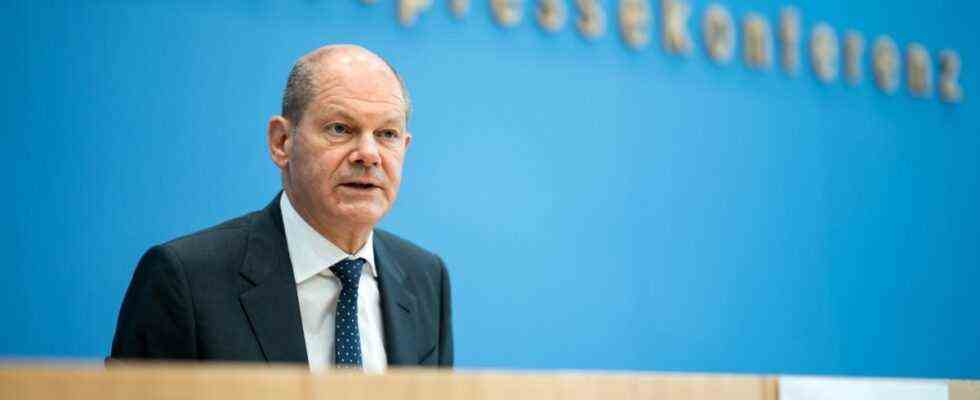The last week of the Bundestag session in this legislative period is coming to an end, with Chancellor Angela Merkel presumably disappearing from federal politics after the Bundestag election, the metaphor of the “Swabian housewife”. Merkel, of all people, was often advised to act sparingly in financial policy based on this model – which she rarely did, not only because she was clearly neither a Swabian nor a housewife; but because, unfortunately, often enough she willingly opened the cash register in the interests of the coalition peace.
In the bad tradition of this expansionary financial policy, the draft budget for 2022, which the Federal Cabinet decided this week on the presentation of Vice Chancellor and Finance Minister Olaf Scholz, also stands. If you are bothered by it, you can calm down by the fact that this budget plan will soon be wasted anyway: a new Bundestag will be elected on September 26, and then everything will be re-shot. But apart from the fact that the rhythms of the authorities call for an early plan, Scholz’s latest draft is politically significant.
Merkel is neither Swabian nor a housewife
The draft for 2022 has been significantly increased again: to almost 450 billion euros – which again requires new borrowing of a further huge 100 billion euros. And the whole thing not only for economic aid after the Corona crisis, which almost everyone understands – but also to enable ever higher expenditures in the usual tasks of the state from armaments to social issues. A Swabian housewife can only turn away with horror.
This picture was always misleading. A state functions differently than a private household. Government spending is an essential part of aggregate demand. They are needed to secure orders for companies and to secure jobs for people. If the state keeps money too tight, economic output and tax revenues shrink, while unemployment and debt rise. That is why Germany can allow itself a higher debt ratio than any private person.
Nevertheless, there is one important thing in common: Citizens and the state must ensure that their financial burden remains manageable. For the state, it is a question of whether the next generation will receive money on the international financial markets at conditions that are acceptable to it. It would therefore be a dramatically wrong approach to abolish the debt brake or to suspend it permanently, as some are now calling for in the election campaign.
Increase Income?
But if the debt burden has to be reduced over the next few years, there are three ways to do this: increase income, cut expenses – or grow out of debt through steady growth. The latter would of course be the most beautiful.
As far as the income is concerned, the SPD, the Greens and the Left want to get new money from the richest in the country and by raising the wealth tax again. Apart from the fact that that will not be enough in total, it would also be a dangerous signal to investors – namely to avoid Germany. Then no new factories will be built (and, by the way, no apartments that are so urgently needed) and fewer jobs will be created.
Cut expenses?
CDU / CSU do not want to increase taxes, the FDP has even categorically ruled that out. But then they have to deal with the expenses, the second option. That is very unpopular, which is why the Union fails to answer the question of how it intends to finance its various promises in many places in its election manifesto; that is dishonest.
And new debts can only exist for expenses that enable economic growth (i.e. the third option). That means, however, that new social benefits must not have priority, no matter how urgent they may be in individual cases, but the starting conditions for investments, innovations and employment must be created – which ideally leads to higher tax revenues and lower social spending. Such investments make sense above all when it comes to climate protection: because nature can no longer wait and because this is a lucrative growth market worldwide.
But these impulses alone will not be enough. It is extremely unlikely that the aging industrial nation of Germany, in view of the strengthened competitors from the USA to China, will generate growth to a degree that will solve the debt problem by itself. Whatever the parties promise now: Of course there will have to be the famous Kassensturz, and everything that is not irrevocable should be examined. In the end it will not work without a mix of higher burdens and fewer benefits for the citizens.

